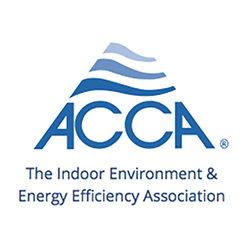Many different areas of the United States seem very warm temperatures, some see it year round. With the intense heat, it is no wonder why home air conditioning accounts for nearly 5 percent of all the electricity costs in the United States. This equals about $15 billion dollars in costs to homeowners. Many homeowners are seeking to replace their older HVAC systems and air conditioners with newer, more efficient ones. These homeowners should understand that getting the correct size of HVAC system and air conditioning can make a big difference in the correct temperatures in the home, the wil, and the energy efficiency. The most common mistake homeowners make when purchasing a new HVAC system is getting on that is too big. This means more installation expense for you, inefficient operation, increased energy bills, and more break downs. A system that is too big can also cause significant temperature swings, making your home more uncomfortable […]
Air Conditioning Myths Debunked
It’s time to question the long-held beliefs we have about our air conditioners. While some air conditioning myths may seem harmless, a few can actually be financially damaging. Separating fantasy from fiction can help us prolong the life of our units and lessen the burden on our pockets. Humidity Will Not Decrease with a Lower Temperature Setting When it’s hot and humid, it is tempting to try to compensate with a slower than usual setting on the A/C. Humidity makes you feel hotter than it actually is, after all. A few degrees south should make up for it, right? Unfortunately, this is not the case. It is a myth that seems logical at first but is quickly dispelled upon closer examination. The solution to the problem is not to tax the compressor with a lower setting but to deal directly with the humidity. Look for a Dry Mode button on your remote control to address […]
The Health Risks Of Freon Gas Leaks
There has been much talk about the effects of Freon and the health issues that may arise from exposure, whether it is a short term or long term exposure. The Relationship Between Freon and Health Freon is actually the trade name for a group of chemicals known as chlorofluorocarbons or CFCs which on the whole are non-flammable, colorless and come in either liquid or gas form. These are frequently used within industry in many ways but the risk to health and the environment shouldn’t be ignored. Longer term exposure to Freon, such as those who work in the HVAC industry, should have regular health checks, especially if they already have an underlying problem with their heart as Freon can cause irregular heart rhythms, dizziness, reduced coordination and concentration and ultimately asphyxia. However, it does appear that these symptoms only occur if there is concentrated exposure. There don’t appear to be any longer term problems with […]
Use UV Lights For Cleaner Indoor Air
A lot of diseases and infections are caused by bacteria and fungi. Most of these pathogens dwell in the indoor air and can be harmful if inhaled by people. Due to this, people are employing different techniques to help improve the air quality. A good example of such techniques is the use of UV lights. Indoor Pollution According to the Environmental Protection Agency, indoor air pollution can be much higher than outdoor air pollution. To fight indoor air pollution people tend to dust the house more, keep windows closed and clean frequently. However, this does not completely clear allergy or asthma symptoms. This is because of airborne pathogens and their byproducts. These airborne germs are a huge contributor to indoor air pollution. Remedy The use of germicidal UV lights helps reduce mold and other unwanted microorganisms, creating a safe living environment. The pathogens die when exposed to UV rays. This clears HVAC surfaces such as […]
5 Home Cooling Myths
As temperatures rise, many people look for ways to lower their electricity bills. Before making any changes around your home, be sure to watch out for a few common air conditioning myths. Fans keep a room cool Fans work by moving air over your skin, making you feel cooler. But this doesn’t make a room cooler. Therefore, you can save energy by turning off the fan in a room you are not using. An exception to the rule is if air outside the house is cooler than the air inside. By placing a fan near a window, you can draw cool air into the room or expel any trapped hot air. A bigger AC will give better results Before opting to buy a bigger AC, there are plenty of reasons your AC might not be up to the task. Be sure to carry out regular maintenance of your system. If the AC is installed in […]







